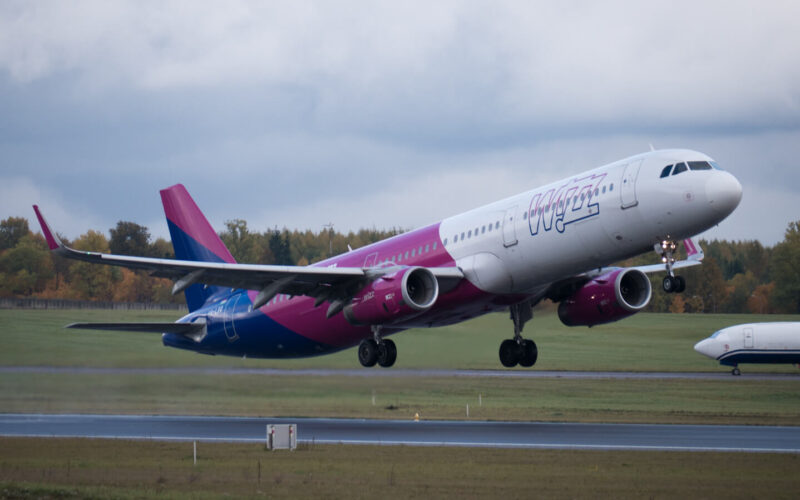One of the biggest and most prominent airlines in Europe, Wizz Air has announced laying off 1000 workers after a 97% fall in operations.
The airline has also confirmed that the salaries of pilots, cabin crew and office staff will also be cut by about 14%, with chief executives, the board and senior staff seeing a 22% cut.
In the announcement published by the Daily Mirror, Wizz Air chief executive Jozsef Varadi said:
“First and foremost, I would like to thank our people for their tremendous support to passengers and communities across all countries during these unprecedented times.
“They have risen to the challenges facing Wizz Air and the industry with grace and determination, especially when it comes to performing repatriation flights for citizens stranded by COVID-19 across the world and delivering key medical supplies to help our countries, communities of caregivers and their patients.”
Operations amount to 3% compared to pre-crisis state
Wizz Air had also announced that the capacity has dropped by 97% and are counting a loss of US$75 million between March and May. The carrier is expecting to report profits of US$270-280 despite the COVID-19 outbreak.
Before the coronavirus pandemic, the airline had announced numerous new routes connecting European cities with Russia and other countries.
Nevertheless, Wizz Air are still expecting to continue with their plans of launching a budget carrier joint venture with a partner in Abu Dhabi this fall. Also, the airline has not deferred or cancelled deliveries for their aircraft and confirmed to still be committed to the 15 new Airbus aircraft due to arrive this year. The carrier has also announced that it will return 32 of its oldest aircraft as their leases expire and the airline strives to cut back on costs and remain profitable.
Wizz Air against state support
While many European airlines are estimated to have about two months of cash reserves, Jozsef Varadi has said that Wizz has sufficient liquidity to span 1.5 years.
“Most European airlines have been badly mismanaged when it comes to liquidity,” he said from Wizz’s headquarters in Budapest. “Now they’re all begging for state support. Governments should only be stepping in in areas of employment and reducing charges such as air-navigation costs.”
The state aid, in Varadi’s eyes could distort the market, helping inefficient carriers.

